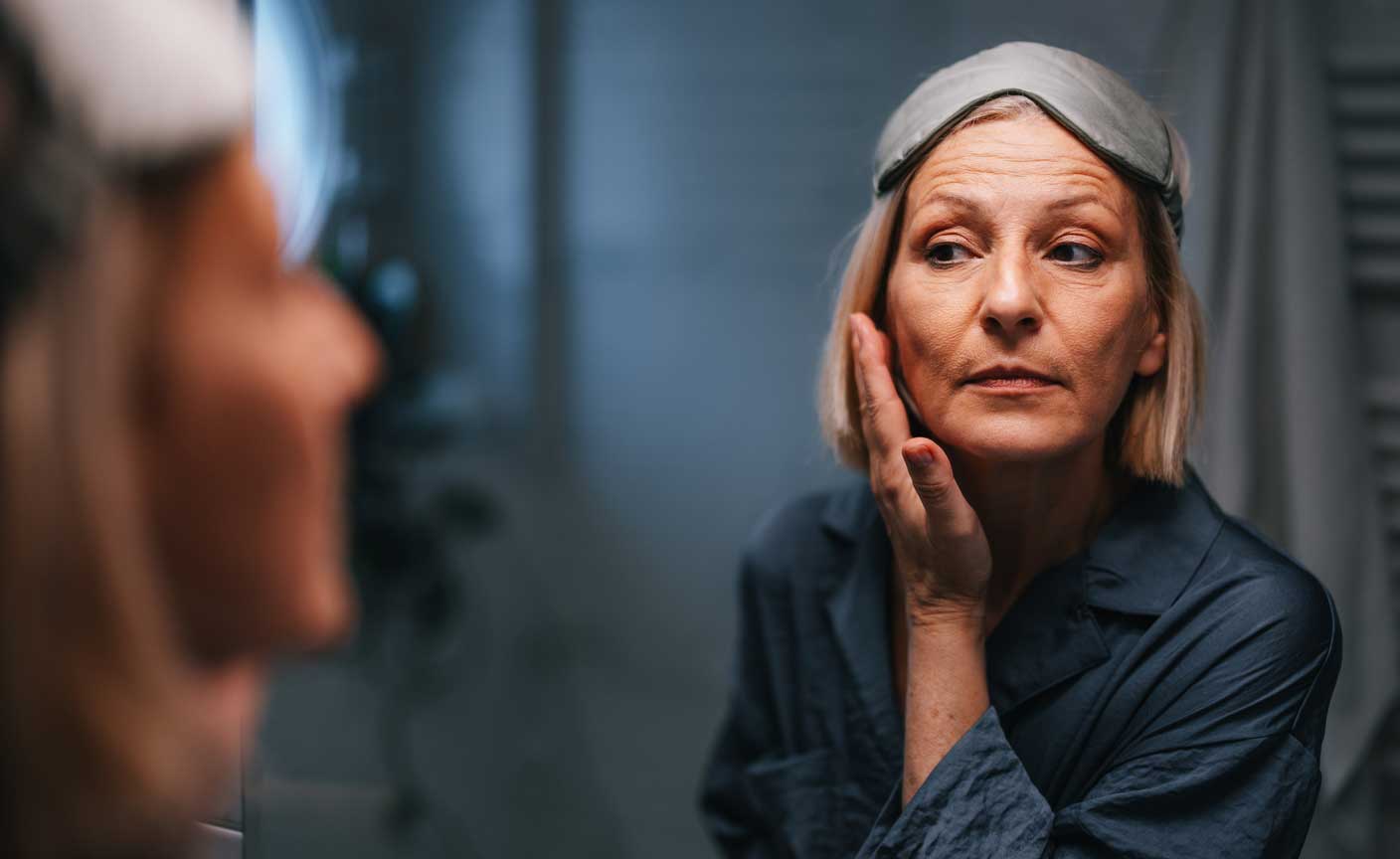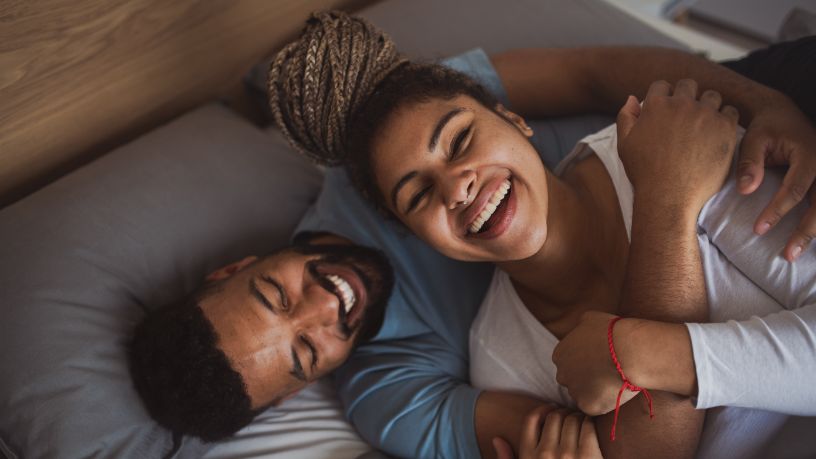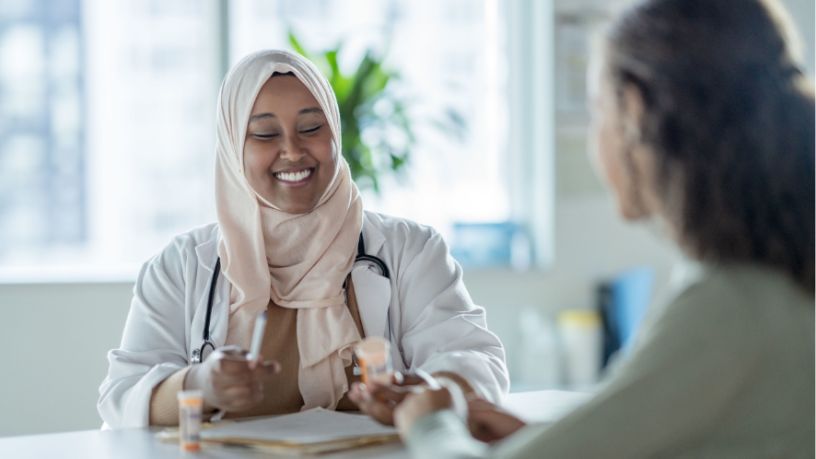Endometriosis is a common and often painful condition where tissue similar to the lining of the uterus grows in other parts of the body.
Key takeaways
Katie thought the crippling pain and heavy periods she was experiencing each month was normal, until a friend shared her endometriosis experience.
Find out what Katie wants others to know about endometriosis.
Katie endured severe period pain for years before she was diagnosed with endometriosis. She thought her pain levels and symptoms were normal.
But when she finally got a diagnosis and received treatment, she found relief from agonising periods and went on to give birth to a baby girl.
Katie’s story
I started my period at around 12 years old and didn't have any serious pain or heavy bleeding. It was all very normal. After university, things started to change.
Period pains became worse, and I was bleeding heavily. I had to start using painkillers and hot water bottles quite regularly to manage the pain, and although my periods didn't stop me from doing anything, I would have heavy bleeding for 4 or 5 days every month.
One day when I was about 25, I woke up to a period that felt like blood was flooding out of me. At the time I didn't have any idea what it was. I was taking the contraceptive pill but thought maybe I was having a miscarriage due to some big clots of blood.
The amount of blood was scary, and I had to change my sanitary pad every hour. I called in sick to work and went to see the first GP I could get an appointment with.
I was told it was just a particularly heavy period. The GP gave me some pills to help stop the bleeding and sent me home. I felt dismissed but had no idea that what I was experiencing was unusual. When I talked to my friends about bad period pain, they all seemed to have it too. I thought maybe I just needed to toughen up a bit. I had a friend that used to vomit with pain during her period, so I'd often think 'at least I'm not that bad'.
Worsening symptoms were normalised
In my late 20s and early 30s, the pain and other symptoms got worse. During my periods, there were times I would be doubled over from the pain.
I didn't want to take painkillers all the time, so I tried using heat as pain relief. I'd wear stick-on heat patches on my stomach just to get through a workday and would avoid going out or exercising while I was on my period. My stomach would bloat so much I'd look pregnant, and I'd wear baggy clothes to hide it.
The pain was terrible, and for a week a month I'd be exhausted. I also found it painful to go to the toilet with a bowel motion when I had my period, but because I was okay the rest of the time, I just thought it was normal and carried on.
A lifechanging diagnosis
One day a friend was telling me she was having a laparoscopy to see if she had endometriosis. It was the first time I'd even heard the word. Her symptoms sounded very familiar, so I went to see my local GP who referred me to a specialist.
The doctor I saw took my history and gave me an ultrasound. I was shocked when he sat down with me afterwards.
“I suspect you have stage 4 endometriosis. It's everywhere I can see, even without a laparoscopy to confirm.”
I couldn't believe I had a disease that just weeks earlier I'd never even heard of. I was scared when he said 'stage 4' because it sounded like cancer, but it actually referred to how much endometriosis was present and how far it had spread.
Treating my endometriosis
The specialist recommended surgery as soon as possible to reduce the pain and told me it was my best chance if I ever wanted to have children. I had my first of 3 procedures in 2011.
The doctor was right. I had severe endometriosis and it was fusing my organs together. He said it was like a bombsite during the first surgery. It was on both ovaries and had spread all the way down to my rectum, which was why I had trouble going to the toilet.
At one stage during the 4-hour surgery, they thought they were going to have to remove part of my bowel.
Instead, they excised as much endometriosis as they could, and I was told I would need more surgery to remove the remaining tissue.
After a second surgery in 2012 (a laparoscopy and resection for stage 3 endometriosis) I fell pregnant with my daughter. I then had a third surgery to remove as much of the remaining endometriosis as possible, by which point I had gone from stage 4 to stage 2.
Life after treatment
The surgeries had an immediate impact to my pain levels. I could socialise, exercise and swim again, and no longer needed to take any time off work to manage period pain or symptoms. It really did change my life. I have an IUD now, so I don't bleed anymore, and I have no pain.
For anyone with these kinds of symptoms, I'd stress the importance of going to see a doctor who listens to their patients and understands endometriosis. Get a referral to a specialist and insist on getting a proper review. This type of pain is very personal and everyone is different, but no one should have to live with what I did for so long.

Self-care starts with a checkup

At Bupa, trust is everything
Our health and wellbeing information is regularly reviewed and maintained by a team of healthcare experts, to ensure its relevancy and accuracy. Everyone's health journey is unique and health outcomes vary from person to person.
This content is not a replacement for personalised and specific medical, healthcare, or other professional advice. If you have concerns about your health, see your doctor or other health professional.
You might also like...
Endometriosis: Everything you need to know
Endometriosis is fairly common in Australia, but it can be tricky to identify symptoms and take years to get a diagnosis. Learn more about the condition.
A guide to endometriosis
Endometriosis is a long-term, progressive condition that affects around one in 9 Australian women. Learn more about the symptoms, diagnosis and treatments.
Different types of contraception: The pros and cons
Contraception is continually evolving, with new information and options becoming available all the time. Find one that’s right for you.
9 ways to make the most of your GP check-up
Doctor’s appointments can feel overwhelming and there can be a lot to get through in a short amount of time. So how can you get the most out of your GP visit?





